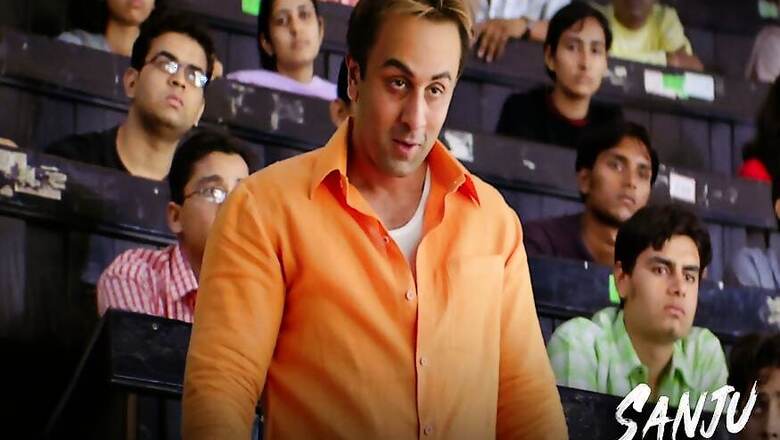
views
Here’s the thing: If you've heard anything at all about the new Sanjay Dutt biopic Sanju, it probably has everything to do with Ranbir Kapoor’s uncanny resemblance to the troubled actor.
As Dutt, Ranbir has the biggest chunk of screen time in the film but so eerily does he imitate the former’s voice and insinuate emotions through his mannerisms, that I confused acting with impersonation. In any other film, it might have been overkill.
We know that Bollywood doesn’t hold an impressive track record of retelling a celebrity’s life onscreen, but I was relieved when I got to know Sanju was in the hands of Rajkumar Hirani. Though his unequivocal admiration for ‘Baba’ did cross my mind, I chose to ignore it, given the kind of films Hirani has made in the past. He breaks down the major events of Dutt’s controversial life into a two-act structure in Sanju, and sadly but expectedly, unfolds it in the safest and most conventional method.
Imagine the story of any typical biopic of a famous celebrity. What do you see? The torture of self-doubt that haunts them through a failed relationship, their descent into drug addiction and how they overcome nearly insurmountable odds, right? That pretty much covers the first half of Sanju. The latter half of it captures his arrest under the stringent Terrorist and Disruptive Activities (Prevention) Act or TADA and conviction under the Arms Act and his jail term.
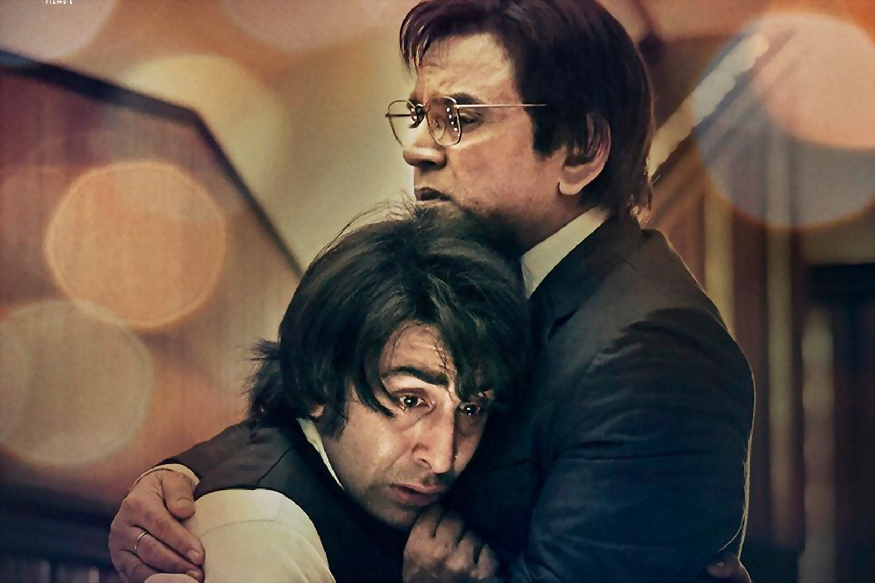
But what starts off as possibly giving us, at the very least, a brief insight into Dutt’s “untold" life, slowly turns into an assault on the Indian media because question marks in the headlines of newspapers can potentially lead to prosecution. Really? In addition, Paresh Rawal’s heart-rending lines like “Mera Beta Koi Guzra Hua Waqt Nahi Hai, Jo Laut Kar Wapas Nahi Aa Sakta", “Wo Bhi Toh Wahan (Jail) Garmi Mein So Raha Hoga" convincingly tricked me into empathising with Dutt’s doings.
Apart from the press, there is plenty of material in Sanju which is used mostly as justifications for Dutt’s acts. For instance, even as a drugged Sanju hangs a toilet seat around her girlfriend Ruby’s neck as a mangalsutra, she requests his friend not to tell him about the incident as he won’t be able to bear it. I’m speechless. And little later we know Baba is actually tricked into addiction.
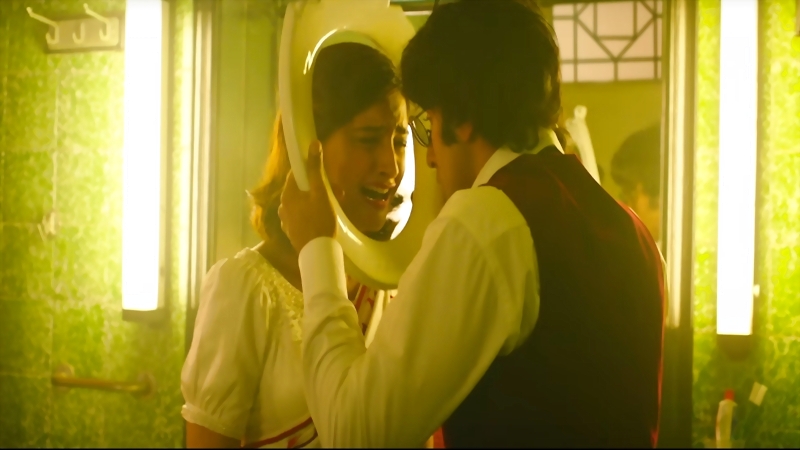
It’s also very strange that Dutt’s first wife Richa Sharma doesn’t even find a mention in the biopic. Not many are aware that Dutt was highly criticised for reportedly abandoning Richa while she was being treated for cancer in New York. In an interview to Cineblitz many years ago, Richa’s sister Ena Sharma had claimed that when Richa came back to Mumbai with Trishala (Dutt’s first child) after completing her treatment, the actor didn’t even come to the airport to receive them despite being called twice.
It is not only Hirani’s sympathies for Dutt that weaken Sanju, but the film’s “selective" take on the actor’s life makes it look unabashedly one-sided. He makes sure that there’s always a character stand around talking about how misunderstood Dutt has been his whole life. I wish he had trusted his audience to come to that conclusion on its own.
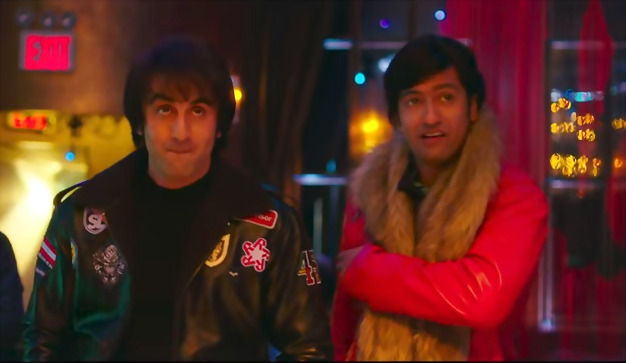
There is no doubt that Sanju has its moments, especially thanks to Vicky Kaushal for making it fun in bits and pieces, but for the most part, the film can't seem to decide whether it wants to focus more on Sanjay Dutt’s controversial life or an emotional father-son story.
Clearly, the opportunity of telling a good story is missed and fans of Sanjay Dutt are left to cheer for a cardboard cut-out of a hero.











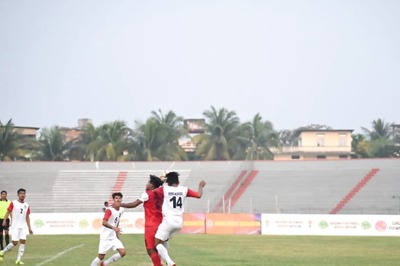
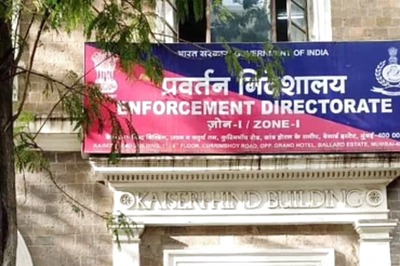
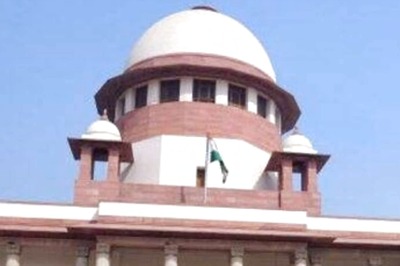



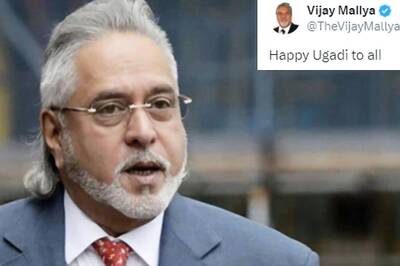

Comments
0 comment